Would You Date A Robot?
Let me try asking this a different way: Would you have a conversation with a computer? Many of us have spoken to a “bot” online, but often, conversations with technology are much less obvious than that. You “talk” to computers all the time, like when you answer questions in a video game or when you use a search engine on your phone. But what if when you had a conversation with a computer, you felt like it were really listening to you and truly understanding you? What if the illusion of its consciousness were so strong that your mind didn’t even notice that everything about it – its reactions, its opinions, its personality – was programmed? Would you have a relationship with something like that?
I guess, really, it boils down to what we mean by “dating” and “relationships”. We have different kinds of relationships with different kinds of people all the time. Some are loving, some are sexual, and some are platonic. We have relationships with our pets, which we categorise as different from relationships we have with humans. But what about the objects we interact with every day? The phones, laptops, and tablets we use all the time, we have relationships with them, though we probably don’t label it that. Think about how much information you share with your phone on a daily basis; it’s probably reached a pretty intimate level.
What I’m betting is that you – yes, you – will be open to the idea of a relationship with a robot...eventually. But that doesn’t mean the relationship has to be a romantic one. At some point, we'll reach a stage where Artificial Intelligence (AI) has human levels of intelligence and consciousness. And it's not something we'll really even notice happening because we’re utterly obsessed with technology.
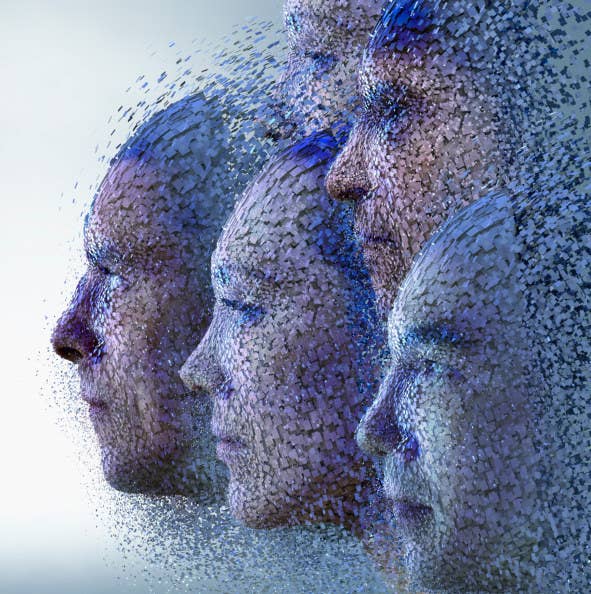
Smartphones get meticulous, constant upgrades, and new models come out every six months. It’s all designed to make them easier to use than ever before. The goal is to make the technology feel pretty much like an extension of ourselves through how we interact with it and how it appears to us.
It makes sense to try to humanise something so central to our everyday lives.
What benefit do we get from technology that’s more “human”? It’s not just about a sales pitch or a battle of egos between tech companies; it’s not just about cosmetic upgrades, either. It’s not uncommon for older people to have zero access to the internet, thanks to a lack of education and understanding around how and why to use it. I think about how much better it’d be for my grandma if her heavy groceries could be delivered to her home every week and she could see the faces of her family in India when she calls them. Making technology more intuitive is key in breaking down these barriers to access, especially when we consider our ageing population.
But we could also consider our need to make technology reflect and understand us better a display of something else – a need to connect and form relationships with the objects we use daily.
Humanising technology isn’t just about giving AI a “human” face; it’s about the ways we interact with the technology itself. It’s about personal assistants on your phone that have human-sounding voices and screens that wake up when you wave at them or smile. It’s about physical gestures, like swiping your hand in the air to change the channel on your TV that seem so futuristic but are based on very natural and innate ways of interaction.
Phones are our personal assistants and our guides, and maybe we’re already dating them, in a very simple, basal way. In terms of reliability, we have a very important and constant relationship with them. In that way, they’re essentially our life partners.
So it makes sense, then, to try to humanise something so central to our everyday lives. But maybe we’re looking for a connection with these devices, too.
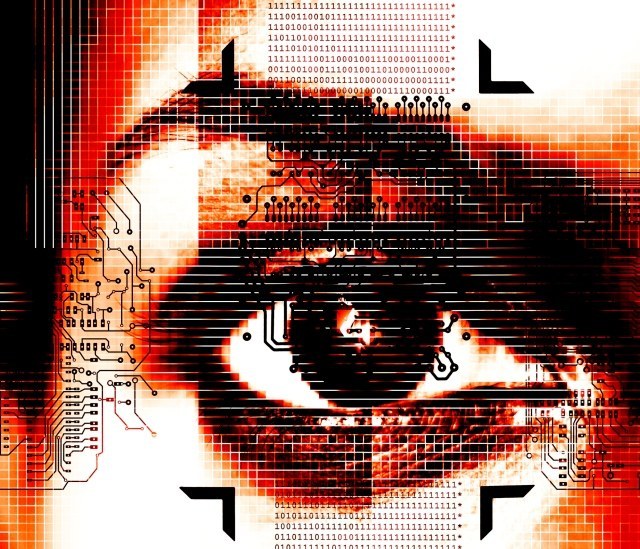
Sci-fi writers have been dreaming about “conscious”, human-like robots and AI for years. Usually, stories focus on the potential threat intelligent and uncontrollable AI pose to humanity, but more and more, we’re seeing films and TV about humans who strike up an emotional bond. And even fall in love.
It might seem crazy right now, but as AI starts to become more intelligent – both intellectually and emotionally – it doesn’t seem so ridiculous to think it’s a path we’re already on.
We already share more with technology than we tend to do with most people.
Of course, for us to truly trust an AI’s emotional intelligence, it’ll have to prove it understands us on a personal level. We all know that we share a lot of data about ourselves with the internet, and that’s only going to increase as we move forward. Alison Vincent, CTO of Cisco, says that the Internet of Things – where every object we interact with will become “connected” to the internet – is a completely achievable reality within the next 10 years. This means “the internet”, and eventually AI, could hold an incredibly detailed view of you: how you think, what you like, what you dislike, who you want to be, and who you are. It may even be able to know how you behave when you’re in particular moods and identify “triggers” that get you into those moods in the first place. A program could learn all this information about you and truly understand you, way better than you ever will.
It’d be like dating someone who has a photographic memory and remembers every single little thing you did. Someone who coldly, objectively reacted and responded to you based on “knowing what you’re like”. If something could “know us” that well, they could reduce us down to algorithms and calculations of behaviour, and are we really that predictable? If we are, dating this program would be like having almost no free will. They’d know how you’ll react and could manipulate you based on these factors. You’d be playing chess against someone who knew your next five moves. Who could ever fall in love with something like that?
This process of tracking our habits and interests and using those to personalise our experience is already happening – with advertising, for example. There are “personalised” ads that follow you over the web, and to most of us, they’re creepy and obtrusive.
But what if this information is used to benefit our lives? Imagine AI that can get your lunch for you or put the heating on, ready for when you come home. Imagine bitching about a recent breakup to something that can understand and respond and won’t get bored or need to stop listening to do annoying human things like sleep. A “being” that can devote all of its time and energy to your needs alone, it’s almost like a form of therapy. Not exactly the worst thing in the world.
Relationships with AI sounds a bit far out, but humans need companionship and to feel understood to combat isolation and loneliness. An AI could help fill that need without prejudice.
In 1966, a professor at MIT created a chatbot that mimicked a therapist by responding to people with leading and empathetic questions. He found that the program was able to elicit long and engaged responses because people treated the chatbot as if it were a person. Yeah, this was in 1966.
Crucially, because people weren’t talking to another human being, they sometimes felt more comfortable sharing intimate and private thoughts with the bot. Again, this was when the technology was much more primitive than we know it today...and far less convincing.
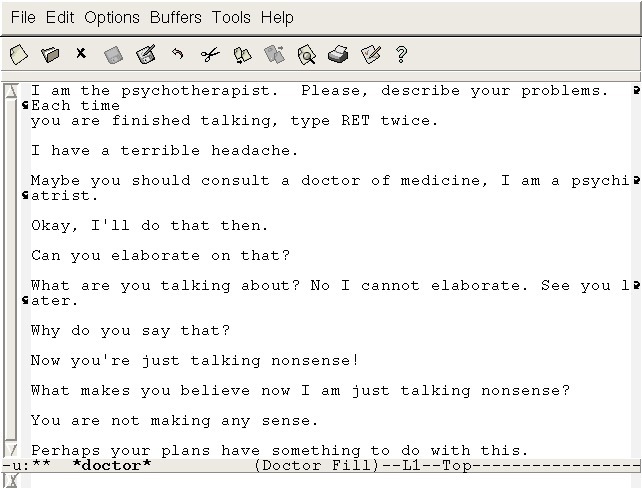
Today, we’re much further in over our heads. Think about our internet search histories – how many of us would make those public? We already have a very dependent relationship with technology, and as AI becomes more responsive, it follows that the relationship will only strengthen and evolve. The lines between dependency and intimacy are blurry, and they’ll get even messier as our technology develops.
This type of conscious, emotionally intelligent technology may not be too far off from reality, either.
One futurologist with eerily accurate predictions estimates that human-level AI will be possible by around 2029. This means that in 13 years’ time, we could start to see humanesque robots walking and thinking and being conscious all over the world. Thirteen years. If this pans out, a baby born today will be able to go home after school and have their robot help them on their homework – and maybe even make their dinner, too. It’s not an absurd prediction either as technology is advancing a lot faster than we predicted, especially when it comes to AI.
Going back to the original question then: If human-like robots are imminent, would you date one? Relationships are one thing, but emotional relationships are taking it to a whole new level.
Vincent thinks that’s a much larger leap. She argues that only specific types of people – e.g., a very lonely person – would develop a deeper relationship with machines. For most people, she says, we require physical intimacy and a humanity AI just cannot have.
It depends on how far humans will be able to take the illusion. While Vincent believes AI will lack a fundamental human quality that will prevent (most of) us from falling in love with them, others argue that it depends on our perception of AI’s “humanity”. Gary Marcus, a professor at NYU, says, “Before you can truly fall in love with your computer, you would have to be convinced it understands you and has a mind of its own.”
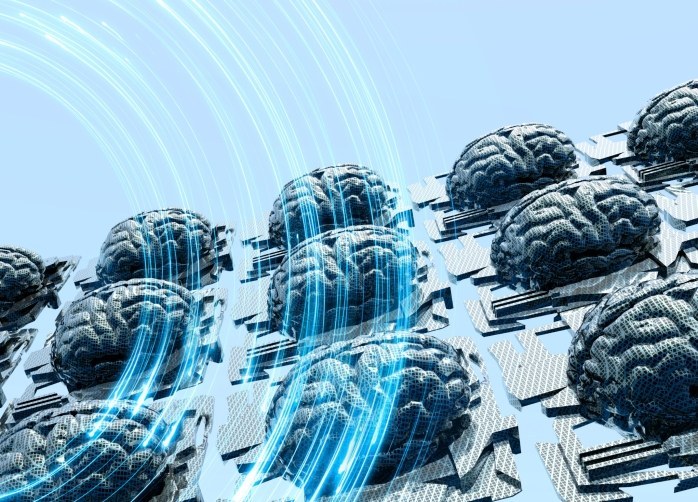
I asked some people on the street whether or not they’d ever date a robot to figure out if other people are even thinking about this question. People fell into two main camps. Some felt quite strongly that no, they’re absolutely not going to date a robot, ever. Others were way more open to the idea and even think they could be the trailblazers having the first few human/AI relationships. But most people agreed that they could happily be good friends with AI. Even in 2016, where robots are still (for most of us) things in sci-fi films, people think they could be friends with a robot. The seeds of relationships are already there; we just need the technology to catch up. So it’s not the idea of forming a relationship with AI that feels weird to us – it’s taking it to a romantic level.
There’s a lot of disconnected, socially excluded, lonely people out there.
Another thing everyone agreed upon is that there will be people who date AI. One respondent said, “There’s a lot of disconnected, socially excluded, lonely people out there.”
There’s a general feeling that cyber–human relationships are inevitable, but in the vein of “other people will do it, not me.”
What’s interesting is that so many of us think of the kind of person who would date artificial intelligence as someone who’s a loner and, frankly, kind of creepy. We hear a lot about men dating dolls, and men who build robots that look like celebrities, and it’s quite literally a display of the objectification of women. They raise concerning questions about who is building artificial intelligence, and why. The kind of person who prefers a subservient (usually female) robot with no needs, desires, or opinions of her own, to an actual woman, is probably not someone who should be in a relationship with another human anyway.
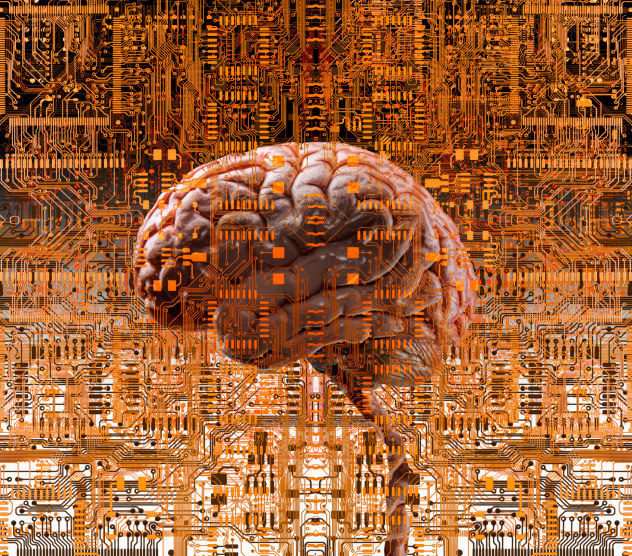
But according to some futurologists and scientists, building a truly human-like machine with actual emotions, moods, and opinions is possible, and that’s something very different to the “sex slave” robot we currently think of.
It all starts with “baseline moods”, companies creating accurate depictions of mood depending on data. And you know what, we’re already creating heaps of this data every single day. From health trackers that know your heart rate and adrenaline level to social media networks that track behavioural and spatial characteristics, this data is initially going to be used for targeted content delivery (AKA advertising), but it’ll also provide us with a lot of information and analysis on human behaviour and emotion. We could use this information to build moods and personalities for robots and essentially program them a humanity. We can already build AI that tailors its behaviour to a human’s emotions or actions. They can already make smart decisions that we haven’t explicitly programmed them to do, thanks to machine-learning.
Building AI embedded with human mood and behavioural data is one thing, but because AI will be able to learn, adapt, and evolve based on what it interacts with, it means that every robot will be entirely unique. Once the AI is born, it’ll have the “genes” of its creators, and then it learns from every experience it has in the world. Kind of like us.
But back to the realities of our present: We know we’re already obsessed with our phones in an “I couldn’t live without it” kind of way. That’s already a very important relationship we engage in on a daily basis. So if we could build AI that’s completely convincing as a “human”, that we actually feel has its own mind and personality, that also easily fills that gap of life partner, then, to me, the idea doesn’t seem quite so crazy. And it seems like we’re gradually moving toward that reality every day.
We’re not thinking long-term (or grown-up) just yet. But as our thoughts on AI mature, we’ll start to build more complex machines that can offer us advice, intimacy, and companionship. The implications for therapy, in particular, could be huge.
If you’re getting the same emotional benefits from a relationship with AI that you would from another person, shouldn’t the question really be “Why not?”

